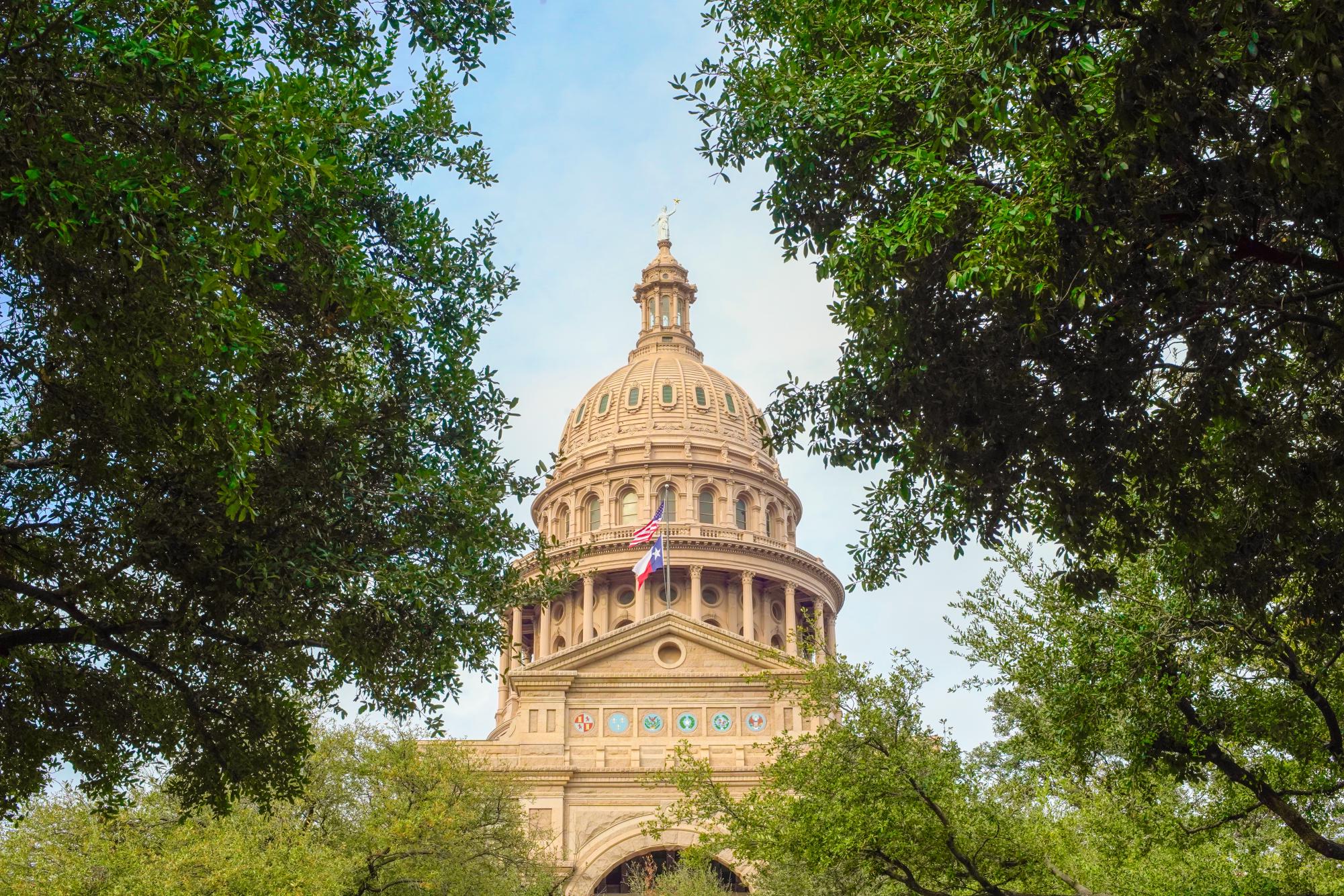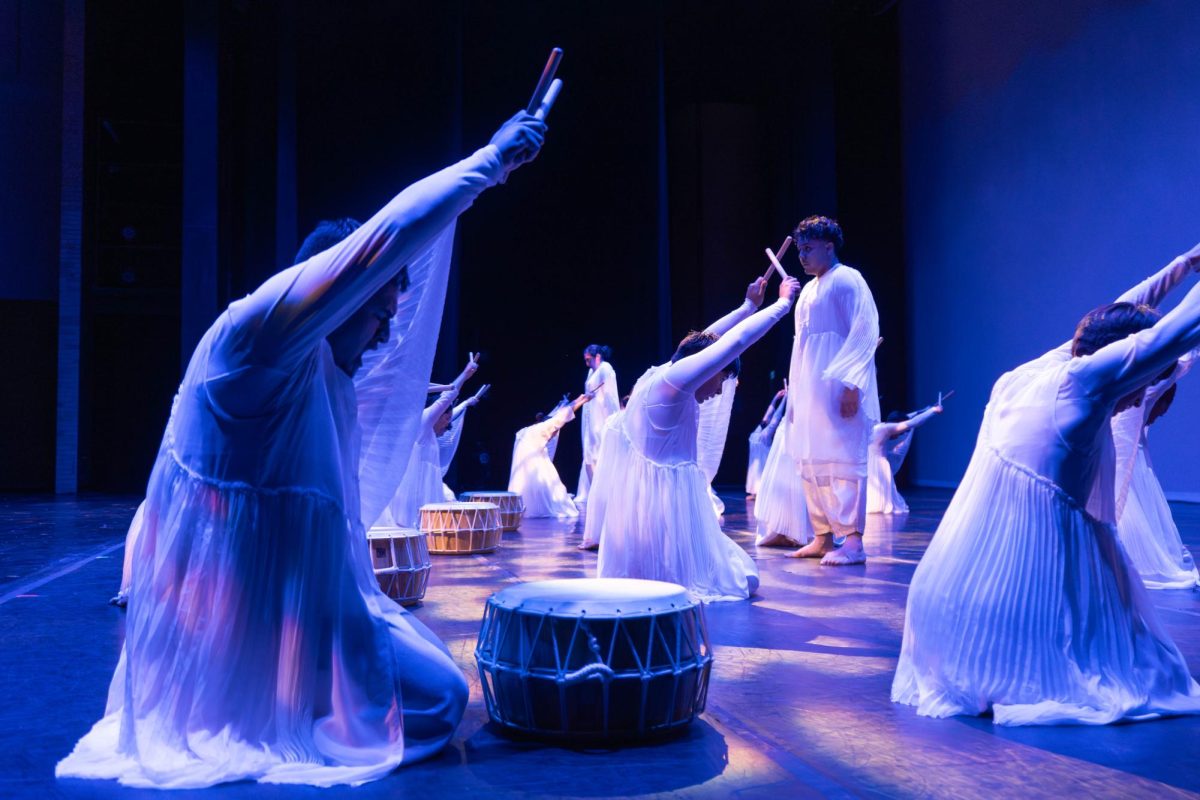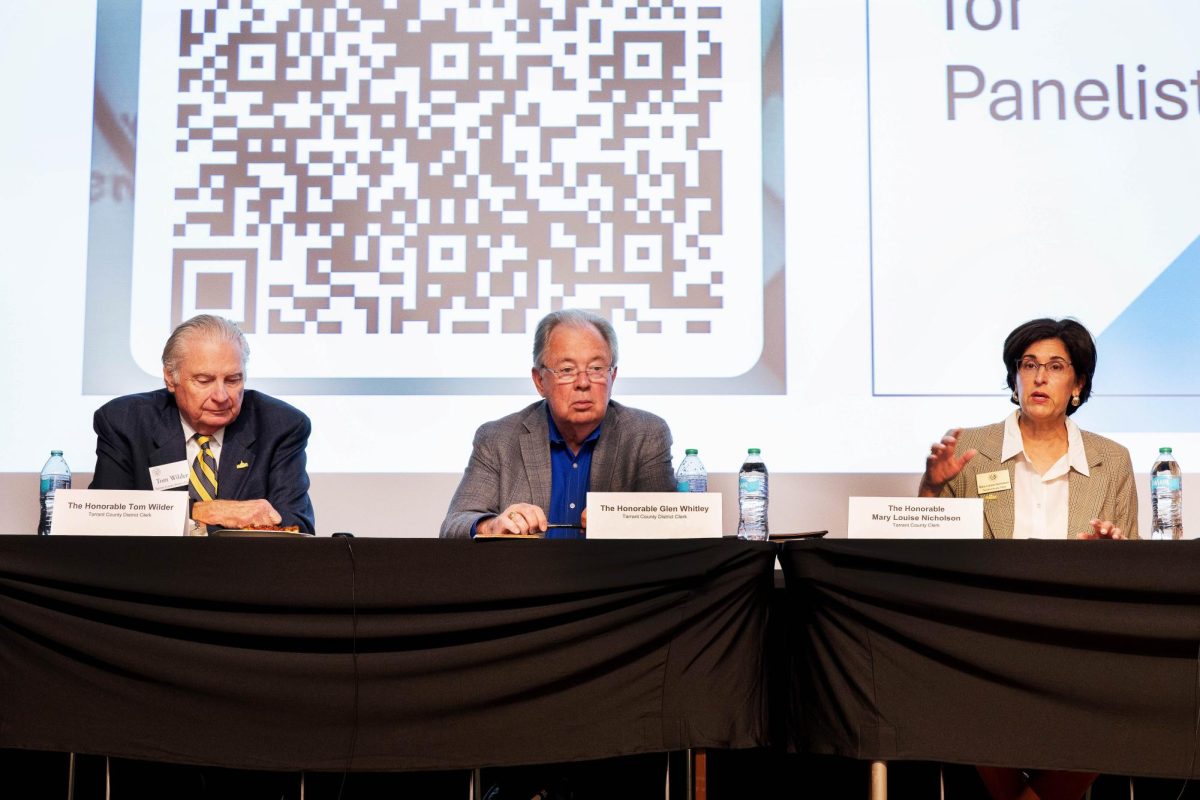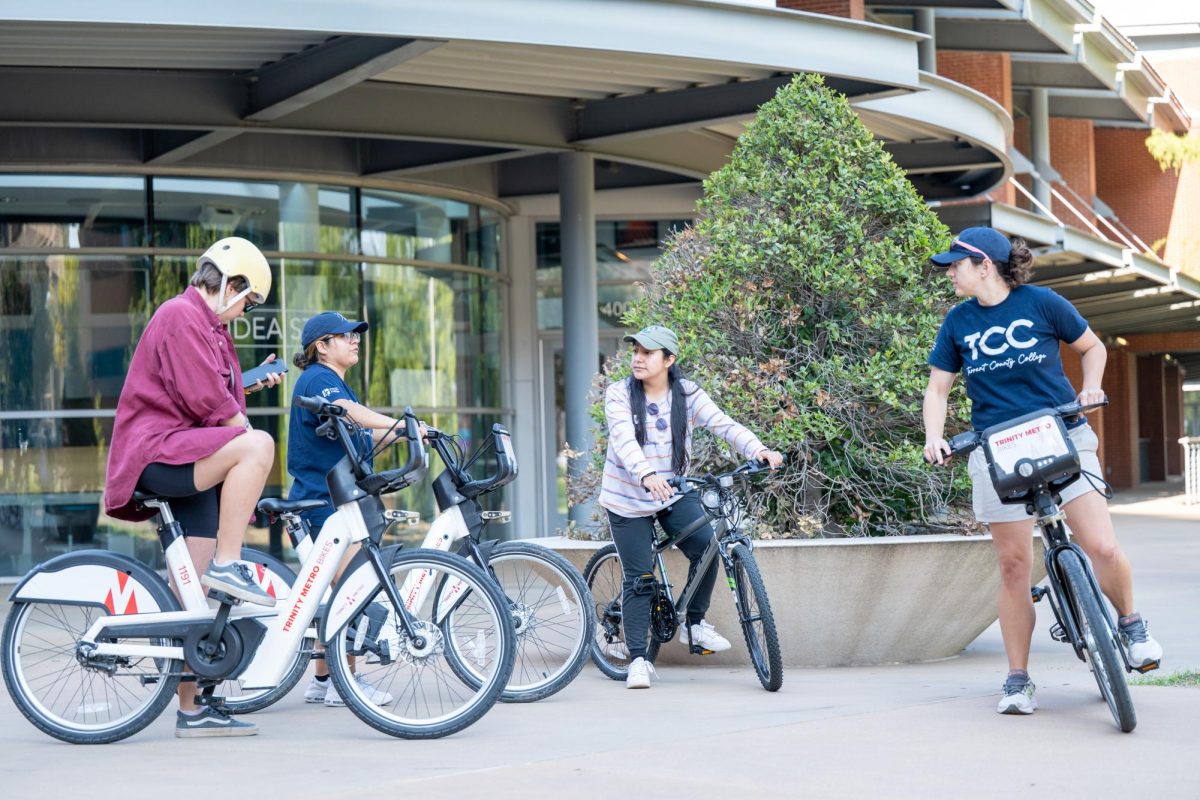Every odd-numbered year, Texas voters head to the polls in November to cast their support for or reject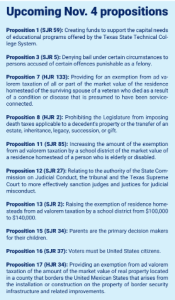 proposed amendments to the Texas Constitution. This year, Texas voters must decide on ratifying amendments about controversial topics such as parental rights, the rights of undocumented immigrants to vote and border security.
proposed amendments to the Texas Constitution. This year, Texas voters must decide on ratifying amendments about controversial topics such as parental rights, the rights of undocumented immigrants to vote and border security.
On Nov. 4, 17 amendments to the Texas Constitution will be on the ballot for Texans to vote on. A majority of the proposed amendments focus on ad valorem taxes and property. Unlike the U.S. Constitution, the Texas Constitution is frequently amended and edited.
NE Campus recently held an event called “Texas at a Crossroads,” where two government instructors discussed the November 2025 ballot proposals.
The two key speakers were NE government instructor Derrick Shelton and tenured government professor Lisa Uhlir. Shelton and Uhlir went over the 17 amendments, providing depth in the language used on the ballot and informing students of noted political arguments both for and against each amendment. The event had an estimated attendance of 100 people.
According to Uhlir, Amendments 15, 16 and 17 are the “big three” of the proposed amendments.
Proposition 15 affirms that a parent has the responsibility to nurture and protect their children and should have the initial and most prominent say in decisions involving their children’s upbringing.
“This proposition will codify that long-standing case law in the Texas Constitution to ensure that this important right cannot be removed or diminished by future court opinions that the parent-child relationship improved in natural law should be safeguarded,” Shelton said. “Fifteen will also make assessing the right simpler, less costly and easier for parents and lawyers, allowing them to cite the constitution to help defend their rights in court.”
Shelton also cited the arguments of critics of Proposition 15, stating critics say it “focuses too heavily on the rights of the parent, without including language to ensure that children’s rights and best interests are protected.”
Proposition 16 establishes a parameter for voting in Texas, stating that non-citizens cannot vote. Uhlir pointed out the redundancy of this proposition, as it is already required by federal election law that a voter must be a U.S. citizen.
“It’s very symbolic.” Uhlir said. “There are several states that allow non-citizens to vote, and some of the critics of that say if we put it in, then it gives legal rights to defend that right. This is about future potential movements to include non-citizens.”
The final proposed amendment, Proposition 17, authorizes the legislation to provide a home tax exemption for property bordering Mexico, if the property has border security infrastructure installed or constructed on said property.
“Those resources could be a higher fence. It can be cameras or other security surveillance systems. What they’re saying is that if you’re a property owner, Proposition 17 is trying to get you a tax exemption for having those devices.” Shelton explained.
Critical arguments for Proposition 17 that Shelton cited were disapproving of the state “incentivizing” border security infrastructure on private property.
“The tax exemption carries on revenue reduction for local governments by rooting property tax value from the tax rolls, which would narrow the tax base and shift the tax burden onto other property owners,” Shelton said.
The organizer of the event, the NE assistant government professor and NE Faculty Association president, Leigh-Anne Regenold, said the students were “really engaged in understanding what some of the language means, which was the point of the program.”
“This is the opportunity for Texans to have what we call ‘direct democracy,’” Regenold said. “That 17 is one of the largest numbers I’ve seen in many years for constitutional amendments. And while some of them seem pretty boring, others may have some significant impact.”
Several students at the event asked questions during the discussion time and voiced their thoughts on these proposed amendments.
NE student Megan Odom said the proposed increases in tax exemption for disabled for elderly households outlined in Proposition 11 would impact her family.
“Both my parents are considered disabled. Both my parents are deaf. I obviously want to ensure that they aren’t getting their house taxes raised because we have a set income,” Odom said.
Voter turnout for these local elections tends to be lower than federal elections, according to Regenold. She used to work as an election judge and said she once oversaw a constitutional amendment election.
“I always ask students ‘How many do you think showed up?’ They’re like ‘a hundred or two-hundred, or a thousand, and I’m like ‘Oh no, way lower.’ I had six voters that turned out in a precinct of about 5,000 people,” Regenold said.
Most of the proposed amendments are tax and funding focused. NE student Joann Condron said a lot of the bills seem to be aimed towards businesses and don’t relate to the average person.
“They’re very business friendly. I don’t know how Texan-friendly it is,” NE student Joann Condron said. “What about the Texans that already live here and don’t necessarily qualify for capital gains taxes, or have property or livestock? A lot of these bills may or may not be things that need to be addressed, but they don’t really do much for the average, everyday Texans.”
Early voting for the proposed amendments starts on Oct. 20 and ends on Oct. 31.

